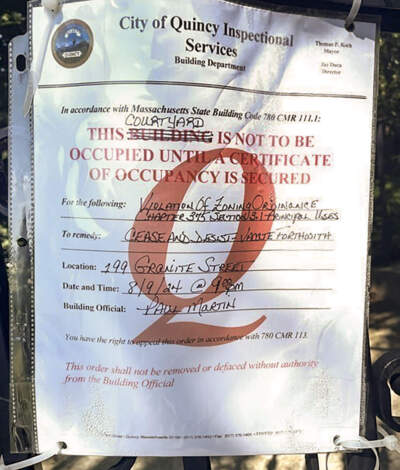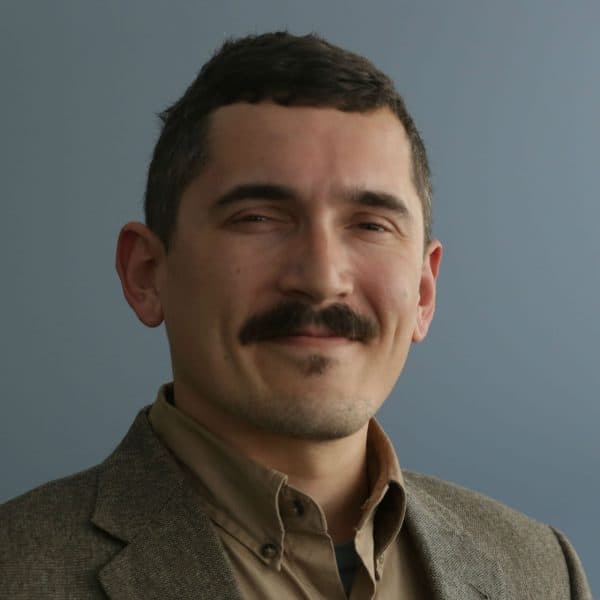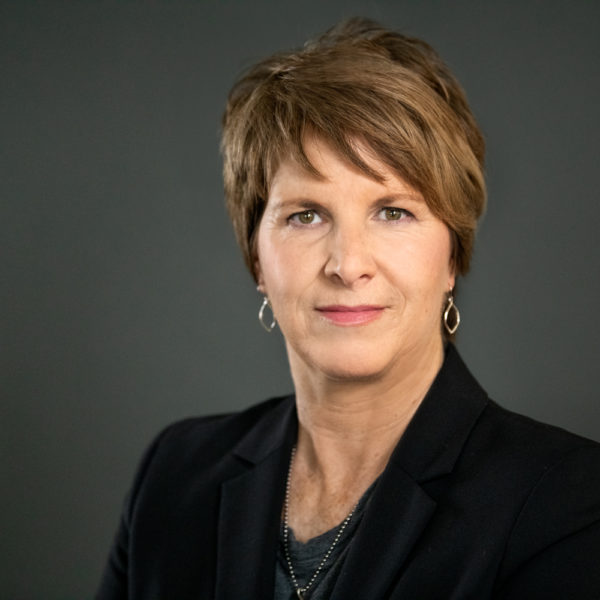Advertisement
Quincy shuts down church's makeshift shelter for migrants
Officials in Quincy shut down a small tent encampment on the grounds of a Lutheran church Friday, leaving volunteers to scramble to find alternative shelter for two dozen Haitian migrants, including children.
The pastor of the church, Niki Harvell, told WBUR she complied with the "cease and desist" order posted to a gate on the church's grounds.
"We did comply because, while we want to do everything we can to live our faith by sheltering folks, we also are a part of this city and do not want to fight them," Harvell said in a text message.
The tents were pitched on the church's private courtyard garden for just two nights before the city took action. The outdoor space is surrounded by trees and is not readily visible to the street.

Mayor Thomas Koch's chief of staff, Chris Walker, in an email said the city's Health Department and Inspectional Services Department had received "neighborhood complaints of unsanitary and potentially unsafe activity on the Church grounds."
The mayor declined an interview request. Three Quincy city councilors did not return calls seeking comment. The inspectional services worker who signed the cease and desist order hung up on WBUR and directed questions to the mayor's office.
The enforcement action raises questions about what churches are allowed to do on their own property. The cease-and-desist letter cites Quincy's zoning bylaw, chapter 375 section 3.1, which states that any use of land not "expressly permitted is hereby prohibited."
The action also comes amid a crisis in the state's family shelter system, which has been operating at or near capacity in recent months, leaving some migrants in the streets. Many have been directed to a welcome center in Quincy, where they have to leave in the afternoons, prompting some families to set up tents outside the Wollaston T station.
Activists responded by teaming up with a Lutheran church in Quincy, which allowed seven large tents to be set up within a walled-in, landscaped area surrounded by evergreens, where the congregation typically holds summer services. WBUR reported on the encampment Friday, and later that day, Quincy officials told church leadership they were violating city zoning rules. Around 9 p.m., a city official posted the notice on the church gate.
The Quincy crackdown also comes as the state grapples with how to involve the broader community in responding to the demand for shelter. Gov. Maura Healey on WBUR's Radio Boston Monday defended her recent decision to limit migrant families to five days in state shelters. She said the shelters are full and, "I want to make sure we're taking care of people" as they arrive, including Massachusetts residents in need of help because of domestic violence or evictions.
Advertisement
Healey also said, "I've called on churches and community groups to step forward with philanthropy." None of the city or state officials contacted by WBUR would say how Quincy's cease-and-desist action squared with that edict.
State Sen. John Keenan, who represents Quincy, said that, with the shelters full and turning migrants away at night, "There are concerns they’ll come into courtyards, parks, playgrounds, and they’ll have no access to bathrooms or food."
He said he has visited the Wollaston T a number of times and is aware that families have been sleeping there, although case workers had advised them to take the T into Boston. But shelters in Boston are also full, and migrants have been discouraged from sleeping at Logan Airport or in hospital emergency rooms.
Judy Wolberg, an independent advocate, helped bring the migrants to the Lutheran church. She said it's confusing to hear calls for churches to help, while at the same time Quincy moved to close a temporary encampment.
"And then churches who try to help get shut down?" Wolberg said.
She said all the families who were in tents are now staying in hotel rooms, paid for by good samaritans.
"We had to act very quickly to get all those tents down," Wolberg said. "It was a big shock."
Wolberg said volunteers are pitching in time and money to help the migrants. But she said it's unsustainable for them to continue providing hotel stays for an indefinite number of people for an indefinite period.
That should be the role of the state, Wolberg said.
"Families have to be able to be sheltered, not in this crazy quilt kind of way that's pasted together loosely by volunteers and donations," she said.
WBUR's Christine Willmsen contributed to this report.

